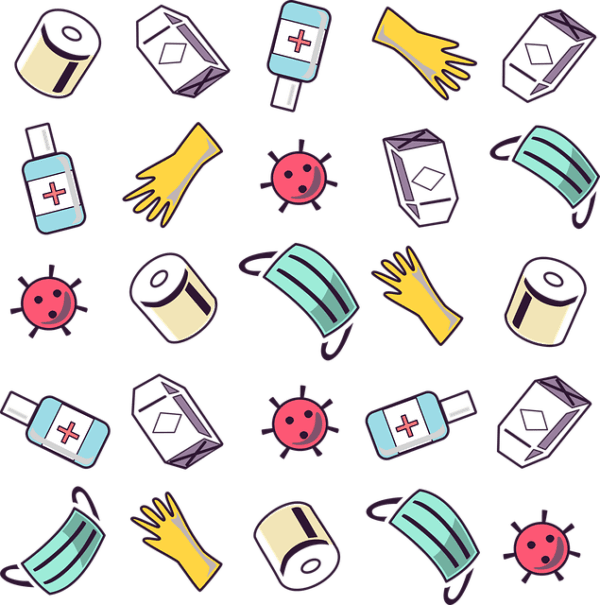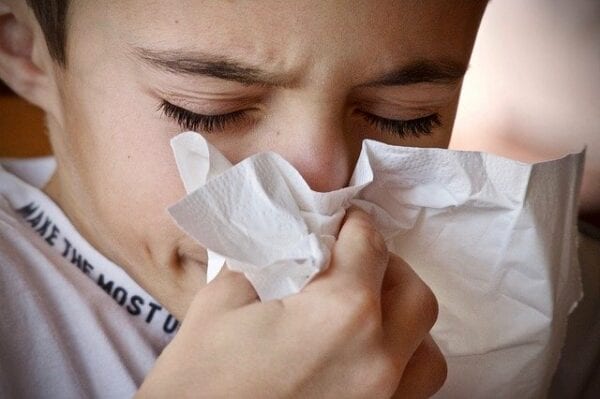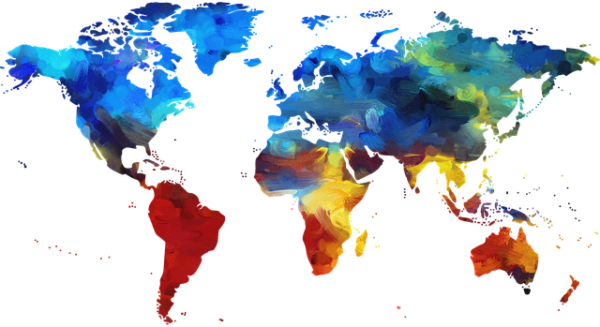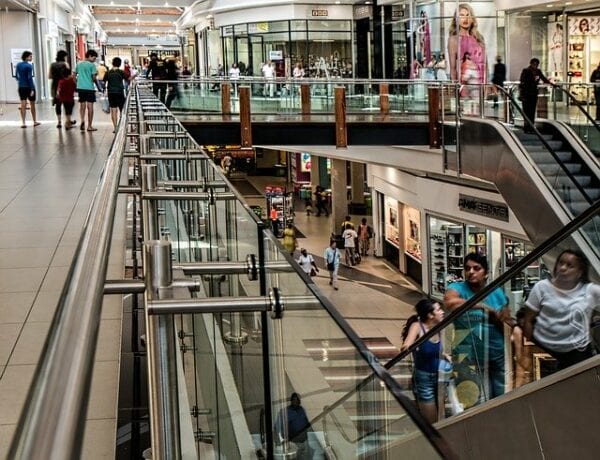
Coronavirus, or more specifically, SARS-CoV-2, which causes the coronavirus disease 2019, commonly referred to as the abbreviated COVID-19, is making headlines daily and is already the subject of thousands of memes across social media. Aside from all the hype and snark, it’s vital to know what the actual facts are in regards to the coronavirus outbreak and how it is affecting our society – both locally and globally.

1. COVID-19 outbreak began in Wuhan, Hubei Province, China most likely and those first infected were those who had visited a large market for seafood and live animals.

2. Coronavirus is a type of virus that originates in animals and is spread to humans from those infected creatures.

3. Coronavirus is not a new thing, although this particular variety is. In the past, we’ve had outbreaks of coronavirus known as SARS-CoV, which originated from civet cats, and MERS-CoV which came from dromedary camels. While it’s not certain at this time, pangolins may be the animal source for COVID-19.

4, Symptoms of COVID-19 mimic those of common illnesses, so it is not always easy to distinguish between cold, flu, allergies, or COVID. The main indicator seems to be the shortness of breath that patience experience alongside fever and coughing.

5. It is likely that since the symptoms, when mild, often are mistaken for other commonplace ailments and the patient recovers without ever being diagnosed and therefore contributes unknowingly to the spread of COVID-19.

6. Most deaths that occur from COVID-19 are among those with underlying illness or compromised immune systems, elderly, or the very young – much the case with the flu or pneumonia.

7. COVID-19 is spread through spittle or spray when coughing or sneezing and can stay active on surfaces for an undetermined length of time. Frequent handwashing and disinfecting of surfaces are recommended to help reduce the spread of the coronavirus.

8. COVID-19 made its way to the United States with the first reports of it being the week of February 23, 2020, having been discovered in two locations in California, as well as Oregon and Washington state. The first death related to the coronavirus in the US also occurred that week.

9. Even still, the risk factor for Americans getting COVID-19 is considered to be low. Major precautions are being made in order to prevent the spread across the population. While it is a global pandemic, there is great value in controlling the outbreak to halt its progress. Without proper precautions in place, the risk factor will continue to rise.

10. The pandemic outbreak of coronavirus can put a huge strain on medical resources globally. While it is a small number of those infected with severe symptoms and complications, that number multiplied across an entire population can leave medical doctors, staff, and hospitals short on manpower as well as physical places to treat patients both with the coronavirus and those with other illnesses.

Major effects of the COVID-19 pandemic:
11. Stockpiling and hoarding have become a severe issue for many consumers in the United States. Bathroom tissue is among one of the items many Americans have had a difficulty finding due to hoarding. Other items include bottled water, rice, pasta, hand sanitizer, alcohol, and other medical supplies. Anyone on social media has no doubt been subjected to hundreds of memes on the subject of shortages, toilet paper in particular. While they are entertaining, people being unable to get basic supplies for daily life is concerning. Recently stores have been limiting purchases as they restock so that shortages do not continue to be a problem.

12. The stock market has suffered staggering losses as the outbreak continues to wreak havoc on the world economy. On Monday, March 15, 2020, Dow Jones dropped nearly 3,000 points (12.94%) which was the worst single-day point drop in history. Also, the S&P 500 fell 11.99% while the NASDAQ fell 12.32%. There have been periods where trading is stopped. The Federal Reserve has slashed its benchmark interest rates to near zero in efforts to reduce the negative impacts on the market as it continues to fall.

13. Global travel has more or less come to a halt now. At first, travel became more restricted to countries with high volumes of cases reported, such as China, South Korea, Italy, and Iran. These countries were among the first to be under a level 3 Travel Health Notice by the CDC, a number that seems to grow daily. As of March 11, the United States barred entry of foreign nationals who had visited the following countries in the past 14 days:
- Austria
- Belgium
- China
- Czech Republic
- Denmark
- Estonia
- Finland
- France
- Germany
- Greece
- Hungary
- Iceland
- Iran
- Italy
- Latvia
- Liechtenstein
- Lithuania
- Luxembourg
- Malta
- Netherlands
- Norway
- Poland
- Portugal
- Slovakia
- Slovenia
- Spain
- Sweden
- Switzerland
On March 16, the UK and Ireland were also added to this ban on entry.
US citizens and legal residents who have visited high-risk areas are currently only allowed to fly into 13 designated international airports as of March 13.
In addition, most countries are now closing all borders in efforts to contain and prevent the spread of the outbreak.

14. Domestic travel, in general, seems to be all but halted as more and more businesses are postponing or halting any unnecessary travels. Currently, domestic flights are still available, but it is recommended that if it can be avoided, to do so. Many businesses are canceling work conferences in lieu of having remote meetings.

15. Remote working is on the rise, and for some is becoming mandatory, as many offices are offering employees the option to work from home instead of physically going to their jobs to reduce the risk of spreading COVID-19. The impact of this on the economy is currently not known, but there is potential to reduce the overhead of many offices switching to this work model should it prove to be effective.

16. Sports entertainment is taking a huge hit due to the COVID-19 outbreak. March Madness will not be going on this year as the NCAA has canceled both men’s and women’s basketball tournaments this year in order to reduce the spread of coronavirus in public gatherings. The PGA tournament has been postponed and will likely take place in summer. Other events postponed include the Kentucky Derby and the French Open which are now slated to take place in September. While this is something that is difficult to duplicate in the virtual world, there is an alternative to watching sports called marble racing. So if you miss watching sports, perhaps give this a try and see how it satisfies the sportsman in you.

17. In early March, the North Star Mall, located in San Antonio, Texas, closed entirely for 24 hours for cleaning after a shopper was diagnosed with the coronavirus. While it did reopen, many shopping malls across the country are now closing as a precaution. Large stores such as Walmart and Target are reducing their hours as well. In some cases, senior citizens are being allowed in an hour prior to opening to the general public to help them be able to obtain their needed items and reduce their potential for exposure.

18. Public schools are being closed and changing to remote classrooms. The first states to institute this change were Kentucky, Maryland, and Ohio and most have since followed in order to cut the risks of students becoming infected with the coronavirus. Most parents are either working from home or working reduced hours so that they are able to stay home with their children. However, in some cases, having a child at home from school is causing further disruption to daily routines as not everyone is being required to work from home. For those working in the medical field, it can be extremely difficult to balance home school and continuing to work regular hours, particularly for single parents.

19. Universities and colleges are also switching to remote classroom settings and sending students home. Some institutions were requesting their students to not return from spring break. Students have been asked to move out of campus housing as dormitories are being closed and cleaned. With campuses being closed, this brings up important questions concerning tuition fees and reimbursements or refunds as students are not having access to amenities that their tuition and fees have paid for, including student housing.

20. Companies that are able to have their employees work remotely from home are now moving to that working model during the pandemic, as mentioned previously. Most of all business trips and seminars are being canceled to reduce the likeliness of employees coming in contact with the coronavirus. Anything that can possibly be done remotely is being converted over to that format. For some whose jobs relied heavily on travel for work are seeking alternative ways to complete the tasks once performed through traveling. Others may find themselves temporarily laid off.

21. SXSW conference and festival in Austin, Texas has been canceled for the first time in its history due to the rapid spread of the coronavirus. Concerts are also being canceled. In fact, public gatherings of any sort are being canceled, regardless of the purpose. With much of the nightlife and entertainment venues closed, people are now staying home and being creative. Fortunately, some are even filming their home adventures and releasing them for viral clips, like this stovetop DJ having a blast alone.

22. Movie theaters are now closed alongside many entertainment facilities as the coronavirus pandemic affects many aspects of daily American life. Unfortunately, this means more people out of work as the population switches to more home entertainment such as Netflix, Hulu, YouTube, and other online platforms. Someone has created Netflix Party so that users are able to chat while watching the same show on Netflix in lieu of watching in person or going to the movies together. It equates to more people being out of work as the digital industry gains more followers. In some instances, digital platforms are cutting or waiving fees for the first three months due to the coronavirus self-quarantines.

23. Hospitals are now prohibiting visitors at any level, limiting the number of people in the building to staff and patients only. While it is disappointing for both the patient and their loved ones to not have visitation, it is a reasonable request as the spread of coronavirus is of great concern. Outpatient procedures that are not an immediate need are being rescheduled for later dates or being urged to reschedule.

24. While doctors’ offices and drug stores are permitted to stay open, what about manufacturers and transport facilities for those who are making the drugs? Not all drugs are manufactured in the United States, so with borders closing, there is potential for problems receiving imported drugs.
Even if the drugs are not being used to treat coronavirus symptoms, there is still a risk of running low or out of medications that are needed on a daily basis. Currently, there is no need for panic, but the question still arises. While most pharmacies are stocked in advance as well as the wholesalers which sell them their drug supplies, it’s unknown at this time whether the coronavirus outbreak could affect the supply chain for needed medicines should the duration be longer than anticipated.

25. Since the discovery of the novel coronavirus in China, experts have been studying the virus in hopes of creating a vaccine and treatment or cure for the disease. There are currently two possible vaccines in development, nearing the testing phase, as well as one treatment drug. The vaccines in development are by Moderna, Inc. and Inovio Pharmaceuticals and the antibody treatment is being developed by Regeneron Pharmaceuticals. No doubt there are more drugs being developed that are not yet public knowledge.

26. Those working in fields that require attending in person in cases where it is not considered a vital role in the current state of daily operation are being urged to take their paid sick or vacation days. Others are seeing hours cut or temporary lay-offs are happening while the quarantine status continues. The government response is to send assistance to its taxpaying citizens to help alleviate some of the hardships workers are facing now. In addition, many companies are now offering assistance when it comes to paying bills and some utility companies are not charging late fees or disconnecting services during this time.

27. America’s judicial system is also feeling an impact from the coronavirus. Jails are notoriously crowded places, leaving a large number of inmates at risk of contracting the illness should one case make it into the population. This is leading to some decisions about an early release to thin out the populations and let those who were incarcerated for lesser and non-violent charges leave the high-risk crowded area and go home for quarantine. Also, court systems are having to restrict the number of people allowed within the courtrooms for certain procedures.

28. Grocery shopping has become a bigger chore than ever. While hoarding specific items has been mentioned previously, there are other issues arising. Due to the large demand for grocery pick-up some services which normally cater to the customer with pick-up options are now flooded and unable to accept pick-up orders. Beyond that, certain items being sold are becoming limited to the customers, such as bags of rice and bottled water to prevent hoarders from clearing out the entire stock. Shops are seeming busier than usual due to fears of running out of supplies while being self-quarantined.

29. While a lot of the studies focus on the effects of the coronavirus outbreak on the daily life of adults, the lives of children are being impacted greatly by the pandemic as well. As one might guess, children are among some of the first to get “cabin fever” from being stuck at home in one setting constantly. Sure they still have homeschool to complete, but the same four walls can have an ill effect on their disposition, creating havoc in families.
Children who are unable to be as active and interactive with their peers are more likely to act out, creating a unique problem for parents. Having creative activities can help calm children who are prone to acting out due to their quarantine, such as charades, building a blanket fort, and maybe even letting them play a game of “the floor is lava” to help them use their imaginations, expend extra energy, and escape the feeling of being stuck for a while. Who knows, maybe the parents will feel a little escape as well.

30. Online business is booming. This is kind of a no-brainer result of the coronavirus pandemic and quarantine situation. People are staying home and finding themselves with more time to spend online checking out videos, shopping, and reading online content. One of the big businesses gaining popularity during this time is online gaming. Whether it be an app on the phone, Xbox, Playstation, or computer gaming, it’s pretty clear that it’s a preferred choice for those who are stuck at home. Verizon has reported a 75% increase in gaming in the United States during peak hours. Video streaming is also up 20%.

It’s not clear how many ways the coronavirus pandemic is going to change life in the United States or for how long, but it is certain that things are changing, and changing quickly. Depending on the duration of the issues we are currently facing, some parts of the American lifestyle may be changed permanently. Humans are extremely adaptive creatures, so while the environment changes, they will continue to evolve with it. In the end, hopefully, good habits are formed to prevent situations such as this from occurring in the future.